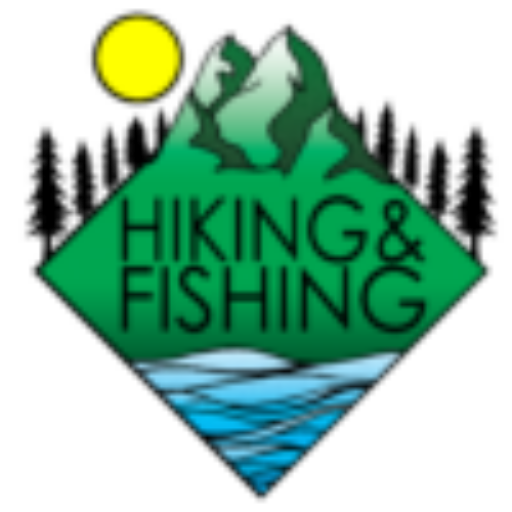If you’re an avid outdoor enthusiast, your tent is one of your most important pieces of gear (and one of your most prized possessions). A good tent can protect you from harsh weather and let you sleep virtually anywhere you want. It can open up a whole new world of outdoor adventures and possibilities.
And you have a lot of options when it comes to picking the tent that’s right for you. Tents come in a number of different materials and there are several different types of tents. Tents can range in complexity from a simple triangular tent to tents that mount to the top of your car. You can find tents that work with most budgets, so where do you start when you’re shopping for a tent?
How To Choose A Tent Brand
Knowing what brands of tents are the best can be really helpful. When you shop from a brand that’s known for its quality and attention to detail, you can feel more confident in your purchasing decisions. When choosing a brand of tent, there are several important factors to consider to ensure you’re selecting a reliable and suitable option for your outdoor adventures. Here’s what to look for in a tent brand and how to make an informed choice:
- Reputation and Reviews: Research the brand’s reputation within the outdoor community. Look for reviews from experienced outdoor enthusiasts who have used their tents. Positive feedback and a history of satisfied customers are indicators of a reputable brand.
- Quality and Durability: A reputable tent brand will prioritize durability and use high-quality fabrics, poles, zippers, and stitching to ensure the tent’s longevity.
- Innovation: Consider if the brand offers innovative features that enhance the camping experience. Look for unique designs, advanced ventilation systems, ease of setup, and other features that set the brand apart from the competition.
- Specialization: Some brands specialize in specific types of tents, such as backpacking, mountaineering, family camping, or expedition tents. Choose a brand that aligns with your intended outdoor activities to ensure you get the right features and performance.
- Variety of Options: Look for a diverse range of sizes, styles, and designs to find the tent that suits your specific requirements.
- User-Friendly Design: Evaluate if the brand’s tents are designed for easy setup, use, and maintenance.
- Weather Resistance: Consider the brand’s reputation for weather-resistant tents. Look for features like waterproof materials, sturdy poles, and well-sealed seams to ensure the tent can handle different weather conditions.
- Customer Support and Warranty: Check if the brand offers a reliable warranty and customer support. A brand that stands behind its products with a solid warranty demonstrates confidence in their quality.
- Sustainability Efforts: If environmental consciousness is important to you, research the brand’s sustainability practices. Brands that prioritize eco-friendly materials, responsible manufacturing, and ethical sourcing may align better with your values.
- Price Range: Compare the prices of the brand’s tents with your budget. Keep in mind that quality and features often correlate with price, but a higher price doesn’t necessarily guarantee a better tent.
By considering these factors, you can make an informed decision when choosing a brand of tent that aligns with your outdoor needs, preferences, and values. Conduct thorough research, read reviews, and prioritize quality to ensure a memorable and enjoyable camping experience. For our list, we’ll share the pros and cons of each company, highlight a few of their most popular models and go over their warranty and return policies.
We also know that sustainability is an important value for people who love the outdoors, so we’ll share what these companies are doing to protect the nature that we hold dear. Many of the most popular brands are popular for great reasons, so let’s take a look at the top tent brands and see just what’s so great about them.
Big Agnes
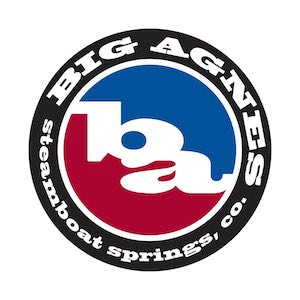 Big Agnes is a well-known outdoor gear company that specializes in manufacturing camping equipment, particularly tents and sleeping bags. The company was founded in 2001 by Bill Gamber and his friends, who were passionate about creating innovative and high-quality outdoor gear. The company is named after Big Agnes Peak in Colorado’s Mount Zirkel Wilderness.
Big Agnes is a well-known outdoor gear company that specializes in manufacturing camping equipment, particularly tents and sleeping bags. The company was founded in 2001 by Bill Gamber and his friends, who were passionate about creating innovative and high-quality outdoor gear. The company is named after Big Agnes Peak in Colorado’s Mount Zirkel Wilderness.
Big Agnes is known for its focus on lightweight and functional designs, which cater to backpackers, campers, and outdoor enthusiasts looking for durable and reliable equipment. One of their notable innovations is the integration of sleeping pads into their tent designs, which helps save weight and increases comfort. They are also well-known for their ultralight designs and strong commitment to sustainability.
- Pros: Innovative designs, tents are very light and durable, lots of specialized designs for ultralight use
- Cons: Tents are expensive
- Top Tents: Tiger Wall UL3, Crag Lake SL2, Copper Spur HV UL2
- Where to Buy: Amazon, Backcountry, Bass Pro Shops, Cabelas, Dick’s, REI | Big Agnes Store
- Warranty and Returns: Big Agnes has a limited warranty for materials and manufacturing. Their corporate values include recycling and repair, and they will repair virtually any kind of damage to your tent.
- Sustainability: Sustainability is a major corporate value for Big Agnes. This includes innovative materials and products, and a commitment to renewable energy at their facilities. They also have a sustainable gear program.
Coleman
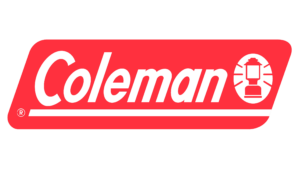 Coleman is a long-established, classic camping brand. Who hasn’t had a Coleman lantern at some point? Coleman tents are popular for their affordability, accessibility, and user-friendly designs. They cater to a broad audience, from casual family campers to weekend warriors.
Coleman is a long-established, classic camping brand. Who hasn’t had a Coleman lantern at some point? Coleman tents are popular for their affordability, accessibility, and user-friendly designs. They cater to a broad audience, from casual family campers to weekend warriors.
Coleman offers some of the largest tents on the market– if you’re camping with the extended family at a state park, a Coleman cabin model should be able to hold all of you. However, their tents are often considered entry level, due to the relative quality of the materials and durability.
- Pros: Budget-friendly, lots of designs, easy to set up, family-friendly, big
- Cons: Less durable than other tents featured here; tents can be somewhat heavy, few useful features (rainflies, etc.)
- Top Tents: Peak1, Skylodge 12, Sundome 6,
- Where to Buy: Amazon, Backcountry, Bass Pro Shops, Cabelas, Dick’s, REI | Coleman Store
- Warranty and Returns: Coleman offers limited warranties for material and manufacturing on some items.
- Sustainability: Coleman supports Leave No Trace, but does not have a publicly available sustainability policy.
Hilleberg
 This Norwegian tent company manufactures its gear to the harsh demands of a Scandinavian winter. Hilleberg tents are often considered top-tier options for serious adventurers, mountaineers, and outdoor professionals who require reliable shelter in challenging environments.
This Norwegian tent company manufactures its gear to the harsh demands of a Scandinavian winter. Hilleberg tents are often considered top-tier options for serious adventurers, mountaineers, and outdoor professionals who require reliable shelter in challenging environments.
Their fabric is coated in silicone instead of polyurethane, which makes it heavy– but highly weather-resistant. This is another company that makes large tents– if you’re camping with a big group, their yurt models or the massive Stalon 14-person tent can shelter you and everyone you know.
- Pros: Extremely durable, stands up to the most severe winter weather conditions (including extreme winds), incredible low-temperature performance
- Cons: Some models are harder to get in the US, expensive, heavy, highly specialized- might be too much for normal conditions
- Top Tents: Allak 2, Nallo 2 GT, Tarra
- Where to Buy: Moosejaw and limited US retailers | Hilleberg Store
- Warranty and Returns: Hilleberg offers a lifetime warranty for all of its products.
- Sustainability: Hilleberg’s products are built to last, and has a company Responsibility Code that promotes finding the most sustainable materials possible. The company helped create a more sustainable anodizing process for aluminum, and works with partners who share responsible sustainability values.
Kelty
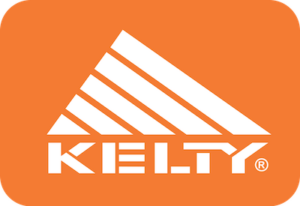 Kelty is known for its solid tent design and user-friendliness. Founded in 1952, Kelty has become well-known for their backpacks, tents, and other camping gear. They are a great option for beginning campers who are looking for tents that work well in many different situations– even though their tents aren’t the most technical, they have plenty of features that make them enjoyable to use. Many of their tents feature stargazing features– they were one of the first companies to adopt roll-back viewing windows so that campers could see the sky.
Kelty is known for its solid tent design and user-friendliness. Founded in 1952, Kelty has become well-known for their backpacks, tents, and other camping gear. They are a great option for beginning campers who are looking for tents that work well in many different situations– even though their tents aren’t the most technical, they have plenty of features that make them enjoyable to use. Many of their tents feature stargazing features– they were one of the first companies to adopt roll-back viewing windows so that campers could see the sky.
- Pros: High quality entry level tents, solid features, durable
- Cons: No ultralight options, not the most innovative design philosophies these days
- Top Tents: Far Out 2, Grand Mesa 4, Wireless 6
- Where to Buy: Amazon, Backcountry, Bass Pro Shops, Cabelas, Dick’s, REI | Kelty Store
- Warranty and Returns: Kelty has a limited lifetime warranty for material and manufacturing for its tents.
- Sustainability: Kelty is one of the four founding members of The Conservation Alliance and sources its materials as sustainably as possible. All of their products are PFC free, and all of their tents are Brominated FR Chemistry free.
Marmot
 Like the alpine animal the company is named after, Marmot’s gear is at home in the mountains. Well-regarded for their numerous snow sport offerings, Marmot has gained a reputation for its commitment to producing high-quality and performance-driven gear for outdoor enthusiasts and adventurers. Their tent designs emphasize performance, and they have many good options for backpackers and ultralight hikers.
Like the alpine animal the company is named after, Marmot’s gear is at home in the mountains. Well-regarded for their numerous snow sport offerings, Marmot has gained a reputation for its commitment to producing high-quality and performance-driven gear for outdoor enthusiasts and adventurers. Their tent designs emphasize performance, and they have many good options for backpackers and ultralight hikers.
- Pros: Reliable, user-friendly designs, high build quality
- Cons: Not as competitive in the ultralight sector as competitors– other tents are usually more roomy for the weight and footprint
- Top Tents: Limelight 2, Limestone 4, Tungsten 2 Ultralight
- Where to Buy: Amazon, Backcountry, Bass Pro Shops, Cabelas, Dick’s, REI | Marmot Store
- Warranty and Returns: All Marmot products are warranted against defects in materials and construction for the practical lifetime of the product.
- Sustainability: Marmot’s manufacturing is PFC-free, and they are an industry leader in ensuring that no child labor or forced labor is used in their overseas manufacturing.
MSR
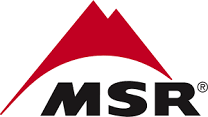 Mountain Safety Research didn’t start out as a tent manufacturer. The organization got its start with mountaineering equipment. MSR quickly gained recognition for its groundbreaking products, such as its popular Groundhog tent pegs and camping stoves.
Mountain Safety Research didn’t start out as a tent manufacturer. The organization got its start with mountaineering equipment. MSR quickly gained recognition for its groundbreaking products, such as its popular Groundhog tent pegs and camping stoves.
Today, MSR is celebrated as a leader in producing high-quality, technical outdoor gear, including tents, stoves, snowshoes, water treatment systems, and more. Their tents are weather-resistant and well-designed for hiking, mountaineering, and backpacking in challenging conditions.
- Pros: Weather-resistant, lightweight, great for technical use
- Cons: Most designs aren’t as good for general camping
- Top Tents: Access 1, Habitude 6, Hubba Hubba 2
- Where to Buy: Amazon, Backcountry, REI | MSR Store
- Warranty and Returns: MSR offers a 3-year warranty for materials and manufacture for all of their products.
- Sustainability: MSR is committed to using sustainable materials and recycling their gear as much as possible. They own their own factories, meaning they have greater control over emissions and water waste, and their Seattle facilities run on 98% renewable energy.
NEMO Equipment
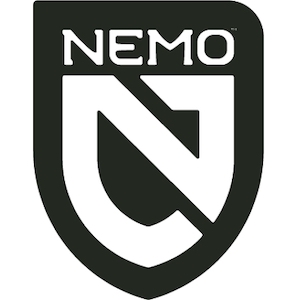 Founded in 2002, NEMO Equipment is a newer entrant into the world of outdoors manufacturing. NEMO’s focus on lightweight materials, user-friendly designs, and functional innovations, such as their integrated air-beam-supported tents, sets them apart in the outdoor gear industry. They appeal to a range of outdoor enthusiasts seeking high-quality and reliable gear for their adventures. Their targeted options for ultralight hiking and bikepacking are particular innovative, with a clever suite of features.
Founded in 2002, NEMO Equipment is a newer entrant into the world of outdoors manufacturing. NEMO’s focus on lightweight materials, user-friendly designs, and functional innovations, such as their integrated air-beam-supported tents, sets them apart in the outdoor gear industry. They appeal to a range of outdoor enthusiasts seeking high-quality and reliable gear for their adventures. Their targeted options for ultralight hiking and bikepacking are particular innovative, with a clever suite of features.
- Pros: Innovative, durable, well-thought-out designs
- Cons: Very expensive
- Top Tents: Aurora, Dagger OSMO, Hornet
- Where to Buy: Amazon, Backcountry, Bass Pro Shops, Cabelas, REI | NEMO Equipment Store
- Warranty and Returns: All NEMO products carry a lifetime warranty against defects in workmanship and materials to the original owner, with proof of purchase.
- Sustainability: NEMO Equipment takes sustainability seriously and is working on cutting emissions in half by 2030. The company is a bluesign system partner and their office space is powered by 100% renewable energy.
REI Co-Op
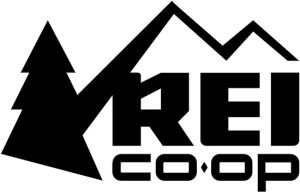 Seattle institution REI Co-Op has been supplying outdoor enthusiasts with reliable, durable gear at great prices since 1938. The company emphasizes sustainability, outdoor education, and community engagement, and is known for its commitment to offering expert advice, quality products, and fostering a sense of community and good stewardship among outdoor enthusiasts. Its tents are known for their value and durability.
Seattle institution REI Co-Op has been supplying outdoor enthusiasts with reliable, durable gear at great prices since 1938. The company emphasizes sustainability, outdoor education, and community engagement, and is known for its commitment to offering expert advice, quality products, and fostering a sense of community and good stewardship among outdoor enthusiasts. Its tents are known for their value and durability.
- Pros: Good value, great accessories, thoughtful designs, durable
- Cons: Heavier than comparable designs from other companies
- Top Tents: Half Dome SL 2+, Skyward 4, Wonderland 6
- Where to Buy: REI Co-Op Store
- Warranty and Returns: REI offers a limited warranty for all new REI-branded products against defects in materials and workmanship at the time of sale.
- Sustainability: The company prioritizes minimizing its environmental impact by sourcing sustainable materials, reducing waste, researching how to reduce microfiber shedding, and promoting durable, long-lasting products. REI has set ambitious goals to become a zero-waste company, striving to reduce its carbon footprint and water usage. Through initiatives like its Re/Supply platform, REI encourages gear recycling and resale, promoting circular consumption.
Stone Glacier
 Stone Glacier is primarily a hunting company and makes durable, sustainable gear that can handle any situation. They are known for their lightweight, highly technical gear, as well as a strong commitment to conservation and responsible hunting.
Stone Glacier is primarily a hunting company and makes durable, sustainable gear that can handle any situation. They are known for their lightweight, highly technical gear, as well as a strong commitment to conservation and responsible hunting.
The brand’s gear, including tents, is designed to be durable and capable of enduring harsh conditions. Stone Glacier’s tents and other products include features specifically tailored to the needs of backcountry hunters and mountaineers, including gear attachment points and specialized materials.
- Pros: Tough, durable, lightweight, well-designed, innovative
- Cons: Highly limited selection
- Top Tents: SG Dome 6P, Sky Solus 1P, Skyair Ult Tarp Shelter
- Where to Buy: Limited authorized retailers | Stone Glacier Store
- Warranty and Returns: Stone Glacier offers a 30 day money back guarantee and free exchanges
- Sustainability: Protecting nature is a major part of Stone Glacier’s company ethos. They commit 1% of their workforce’s time and at least 1% of their profits to conservation efforts, including boots on the ground efforts and support for nonprofits and government agencies that support conservation.
Thule
 Thule’s cartop tents might have limited uses compared to the products made by other tent companies on our list– but if you want to use your tent for car top camping, you may want that tent to be made by Thule (though there are some other awesome car top tent brands as well).
Thule’s cartop tents might have limited uses compared to the products made by other tent companies on our list– but if you want to use your tent for car top camping, you may want that tent to be made by Thule (though there are some other awesome car top tent brands as well).
Best known for their roof racks and cargo boxes, Thule has been the company of choice for many outdoor enthusiasts who need to haul their stuff. Their cartop tents are easy to assemble and quite comfortable– so long as you have the right crossbars.
- Pros: Durable, lightweight (for cartop tents, which are naturally going to be somewhat heavy), lots of available accessories for their tents like vestibules and mosquito netting
- Cons: Only for cartop camping, expensive, require Thule crossbars to work
- Top Tents: Approach M, Basin Hardtop, Tepui Explorer Kukenam
- Where to Buy: Amazon, Backcountry, Bass Pro Shops, Cabelas, REI | Thule Store
- Warranty and Returns: Thule’s cartop tents come with a two year complete warranty.
- Sustainability: Thule emphasizes smart logistics and sustainable material to reduce their environmental impact.
Notable Mentions
We acknowledge that we didn’t cover every tent brands, and many other brands have fantastic reputations, or minimally, products in their line that are also fantastic. Here we wanted to mention some other great brands we have used and also like:
The North Face
Simply put, The North Face creates incredible gear, not just tents.
Shop On: Website | Amazon | Backcountry | REI
ALPS Mountaineering
This is one of our all time favorite budget brands. Our Alps Mountaineering tent has seen heavy use for the past 8 years and still works great!
Shop On: Website | Amazon | REI | Backcountry
In the world of outdoor exploration, the right tent can make all the difference, providing a secure haven amidst nature’s beauty. Whether you’re seeking lightweight backpacking options, four-season shelters for extreme conditions, or family-friendly designs, these top tent brands have proven their dedication to quality, innovation, and fulfilling the diverse needs of adventurers worldwide.
So as you get ready for your next big outdoor adventure, rest assured that the right tent, crafted by these renowned brands, awaits to be your trusty companion in the great outdoors. For more gear reviews and recommendations, check out our gear articles for more information. We have all the guidance you need to get yourself equipped and ready to hit the trail.
Our Expertise
Our team has tested dozens of tents. We communicate with guides, friends, read hundreds of tent model reviews, and even spoke workers in stores (like REI) to help determine the best tent brands. Above, we discussed our criteria for choosing the best brands, and in our years of experience testing lots of tents and brands, this is our top list. We haven’t tried every tent that each of these brands offer, that would be impossible, but we have tested enough from each brand that we believe we are just as equipped, if not, more equipped than anyone else to provide recommendations.
This article contains affiliate links, but we do not let this affect any of our recommendations.
Max DesMarais is the founder of hikingandfishing.com. He has a passion for the outdoors and making outdoor education and adventure more accessible. Max is a published author for various outdoor adventure, travel, and marketing websites. He is an experienced hiker, backpacker, fly fisherman, backcountry skier, trail runner, and spends his free time in the outdoors. These adventures allow him to test gear, learn new skills, and experience new places so that he can educate others. Max grew up hiking all around New Hampshire and New England. He became obsessed with the New Hampshire mountains, and the NH 48, where he guided hikes and trail runs in the White Mountains. Since moving out west, Max has continued climbed all of the Colorado 14ers, is always testing gear, learning skills, gaining experience, and building his endurance for outdoor sports. You can read more about his experience here: hikingandfishing/about
